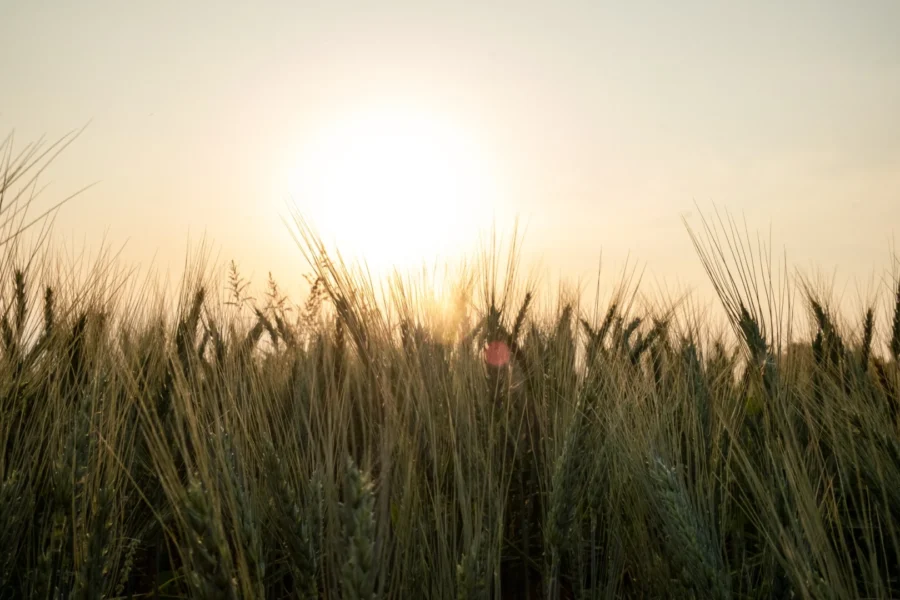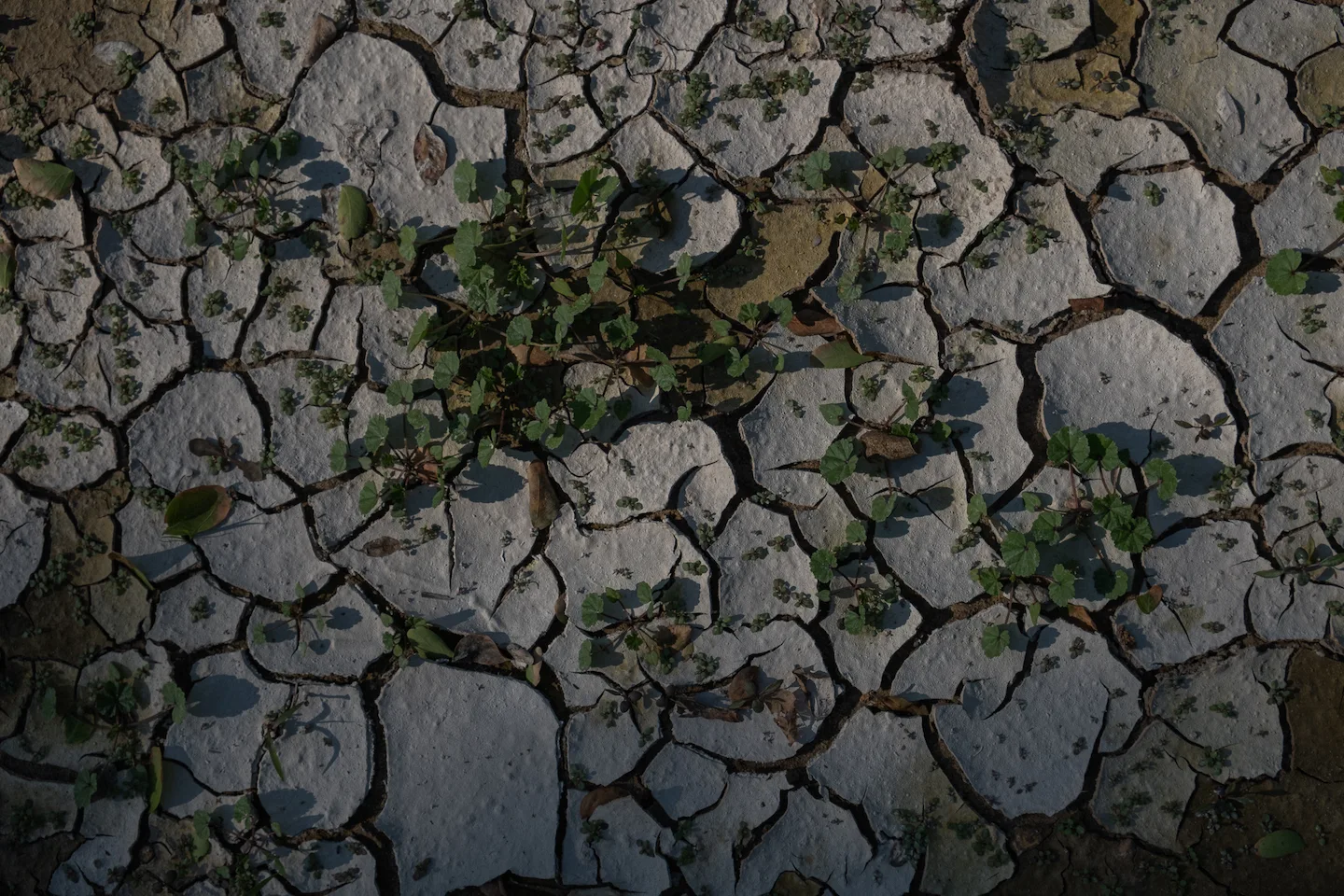Heenat Salma is a pioneering, 50-hectare organic farm in Doha, Qatar, which embodies the principles of permaculture and regenerative agriculture. We envision Heenat Salma as a living laboratory that showcases the potential for regenerative farming practices in arid regions and charts a path towards the transformation of these regions at large, into fertile, biodiverse and resilient landscapes. In this way, we seek to counter desertification and build a local, organic food supply in Qatar, in service of the health and wellbeing of the nation.

At Heenat Salma farm, we are working to cultivate a wide variety of fruits, vegetables, medicinal plants, and a growing number of high-welfare animal products that can provide a local, seasonal, and nutritious source of food throughout the year. The farm also serves as a hub for interdisciplinary education, offering practical programs in regenerative agriculture and food culture, with the intention of improving awareness about the benefits of organic, regenerative farming, and supporting the revival of a sustainable and ethical value chain for organic food production in Qatar.
In partnership with a growing number of leading local and international research and policy institutions — including the Soil Association, Qatar University’s Biological and Environmental Sciences departments and the Qatar Ministry of Municipality and Environment — we seek to inspire a wide audience, including farmers, landowners, policymakers, educators, and homeowners, to support the adoption of organic farming principles and systems in Qatar and internationally.
Regenerative and organic agricultural practices work towards the replenishment and sustenance of ecological health, biodiversity, productivity, and resilience. Waste and toxicity are concepts that do not exist within regenerative food systems, as all inputs and outputs have vital functions for the health and wellbeing of the system as a whole. There is no use of artificial chemical inputs, for pest control, crop fertilisation, or any other purpose.
Seeds are saved and protected for future crop cycles, and the soil is nourished, rather than depleted, with every farming cycle.
Animals are viewed as an integral part of these systems, and all husbandry is conducted in an ethical way. The food systems associated with these practices are associated with multiple positive health outcomes for farmers and local populations, as well as an enhancement in farmer livelihoods.
These practices are grounded in the ecological, social, and cultural principles of traditional and indigenous food systems, which are inherently local, biodiverse, regenerative, organic, and seasonal.

“The soil is the great connector of lives, the source and destination of all. It is the healer, restorer and resurrector, by which disease passes into health, age into youth, death into life. Without proper care for it we can have no community, because without proper care for it we can have no life.”
Wendell Berry, conservationist and writer
Soil is one of the most precious resources on the planet. Yet the UN has estimated we have only 50 years of farmable soil left on the planet, due to intensive, chemical-heavy agricultural practices, alongside deforestation, soil erosion, and climate change.
Central to our regenerative approach is the practice of cultivating and maintaining vital soil, in service of the ecosystem as a whole. For soil to yield vital produce, it must first be alive and healthy. By working with compost, mulching, natural organic fertilisers and adapted soil tillage practices, we enhance the capacity of soil to hold water and a microbial community providing nutrients for the plants.
This year, in 2024, we have become “compost-positive” and will produce 300 tonnes of certified organic compost, which surpasses our own needs as a farm by close to 50 percent. We are delighted to now be able to offer certified organic compost to farm visitors and neighbouring farms.
In partnership with a growing number of leading local and international research and policy institutions — including the Soil Association, Qatar University’s Biological and Environmental Sciences departments and the Qatar Ministry of Municipality and Environment — we seek to inspire a wide audience, including farmers, landowners, policymakers, educators, and homeowners, to support the adoption of organic farming principles and systems in Qatar and internationally.
At Heenat Salma farm, we grow 628 date palms of many varieties, including Khalas, Shishi, Khenaizi, Shabibi, and Hilali. These palms are an essential part of Qatari tradition. Dates are a highly cultural delight and have multiple nutritional benefits. The varieties grown contribute to the conservation of the biological diversity of date palms adapted to the Gulf countries.
Around 5km of trees surround the farm and main crop fields. These trees are particularly important for providing a shaded microclimate for crops, livestock, and visitors, and for wind breaking. They are home to many wild birds and are of vital importance for local biodiversity.
Around 5 km of trees surround the farm and main crop fields. These trees are particularly important for providing a microclimate for chickens, crops, and visitors, and for wind breaking. They are home to many wild birds and are of vital importance for biodiversity.
To date, we have planted 140 varieties of 78 crops as part of our ongoing vision to create a biodiverse, resilient, and nutritionally abundant farm, which provides a rich basket of nutritional produce to the population of Qatar. In addition to a diversity of crops, we also have more than 400 local mixed breed chickens on our farm.
We have planted more than 4000 trees on the farm since 2019 and have created Qatar’s only organic seed bank with more than 60 unique indigenous and organic seed varieties. Our ambition is to save and expand our stores of seeds adapted to the local climate to enable the farm to produce all the seeds it needs for its own production and to help to spread organic and indigenous plants in Qatar.
Out of our 78 crops, 59 are organically certified by ETKO, the Ecological Farming Control Organisation, alongside our compost. The remaining crops, alongside our poultry meat and eggs, are in a transition period towards organic certification.
Our organic Plant Nursery, located on 3000 square metres of land, is dedicated to the production of vegetable seedlings, aromatic plants, fruit trees, and indigenous tree species, all adapted to thrive in Qatar’s challenging climate.
We specialise in climate-adaptive plants, specifically bred to endure high temperatures and harsh environmental conditions. Our commitment to organic cultivation is reflected in our exclusive use of organic seeds, fertilisers, and regenerative farming methods, positioning our nursery as a premier resource for those embarking on their own organic agriculture journey.
A pivotal aspect of our research work involves the germination of new plant varieties that are best suited to the local climate. This ensures that our continuous innovation and development efforts keep us at the forefront of providing top-tier agricultural seedlings optimised for organic, regenerative farming in arid regions.
We use cookies to provide necessary website functionality, to improve your experience and analyze our traffic. By using our website, you agree to our"
Privacy Policy
- and our cookies usage.